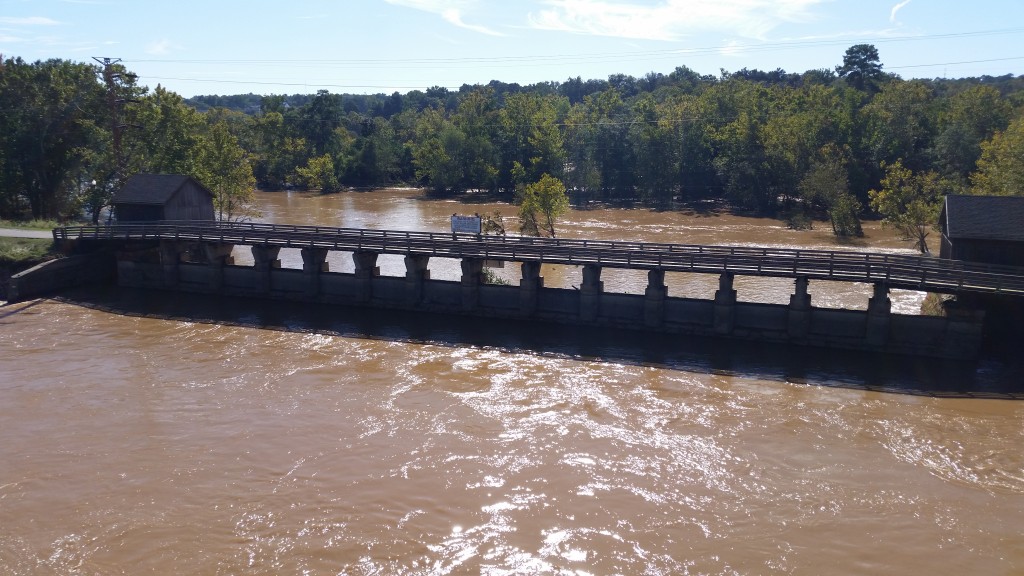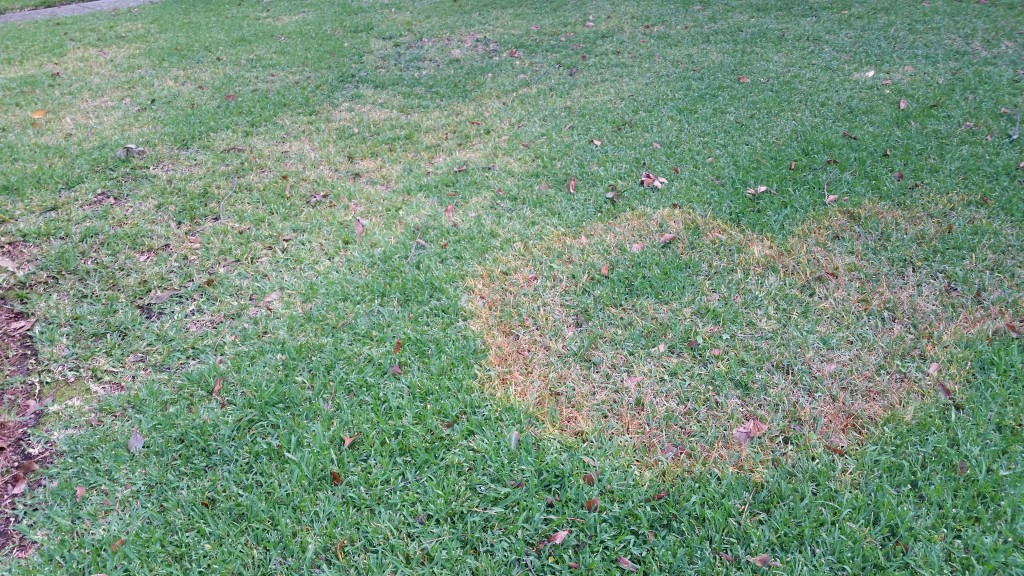 In the wake of the historic flooding we recently experienced in the Midlands, many people are working hard to rebuild and repair damaged property. In addition to damaged homes and vehicles, the 1.5 to 2 feet of rain we received on October 4, 2015 has also damaged many lawns in and around Columbia. Some damage is immediately apparent. Certain areas may have been lost entirely, due to erosion or dead grass in areas that were submerged or covered in silt and debris for more than 4 or 5 days. Sometimes, however, the damage caused by flooding may not be visible right away. There are many things to consider when caring for flooded lawns.
In the wake of the historic flooding we recently experienced in the Midlands, many people are working hard to rebuild and repair damaged property. In addition to damaged homes and vehicles, the 1.5 to 2 feet of rain we received on October 4, 2015 has also damaged many lawns in and around Columbia. Some damage is immediately apparent. Certain areas may have been lost entirely, due to erosion or dead grass in areas that were submerged or covered in silt and debris for more than 4 or 5 days. Sometimes, however, the damage caused by flooding may not be visible right away. There are many things to consider when caring for flooded lawns.
Complicating matters in South Carolina right now is the timing of the flooding. Most lawns in the Midlands are made up of warm-season turf varieties that go dormant during the cooler months. The arrival of colder temperatures and shorter days has already slowed the growth of many lawns, and slow growth means slow recovery. Lawns that have been destroyed by erosion or prolonged submersion will likely need to be re-sodded in the spring. Although late season sodding can be done, it is risky and you should consult a reputable installer to be sure that the job is done correctly and at the right time.
For lawn areas that are not a total loss, it is extremely important to remove debris and sediment from the lawn as soon as possible. This debris can deprive the grass of oxygen and sunlight, as well as expose your grass to potentially harmful substances left behind by the flooding. In some cases, it might even be necessary to hose-off flood residue with clean water. Sediment from flood waters can sometimes affect the pH of your soil, so having your soil tested is a good idea.
Clearing debris off your lawn is always a good practice, anyway. It helps to promote better air circulation and allows the grass to dry out. Prolonged leaf wetness can promote development of turf diseases and can cause damage into next spring, so applying fungicides to your grass can be helpful.
Core aeration next spring will also benefit your lawn. Flooding and traffic on your lawn afterward can lead to soil compaction. Core aeration will also help to manage thatch and improve air circulation, reducing the effects of lawn disease, and it will help your grass to develop a larger and stronger root system.
Flood waters can also deposit large quantities of weed seeds on your lawn, so it is not uncommon to see an outbreak of new weeds in lawn areas affected by flooding. Keeping up with pre-emergent weed control treatments can help to reduce the weed population in your lawn this winter and into next season.
Flooding also affects and displaces wildlife and insect pests. Colonies of fire ants, for example, will join together and form rafts made of ants and they will float to higher ground. Once they have reached dry ground, they will form new colonies. If you notice fire ant mounds forming in your yard, they can be treated with insecticides.
Flooding can have many lasting effects on your lawn, but there are steps you can take to help your lawn recover and reduce further problems later on. Keep your lawn clear of debris, have your soil tested, treat as needed for turf disease, weeds and insect pests and have your lawn core aerated next spring. If you have questions about the effects of flooding on your lawn or any other lawn care concerns, please feel free to contact us. We’re here to help.
Our continued thoughts and prayers are with our customers and our neighbors as we all work together to recover from the flood. We’re proud to call the South Carolina Midlands home!
